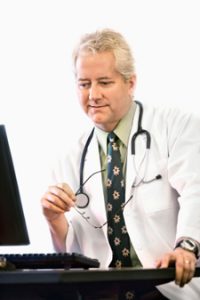Physicians: Are You Ready?
 When it comes to any emergency situation, preparedness is of the utmost importance, particularly among physicians who are heavily relied upon to respond in times of crisis. When a disaster occurs – be it manmade or natural – it is up to the healthcare community to provide immediate, high-quality care to those affected and also be prepared to provide continuing care in the hours, days, and weeks that follow the event in order to ensure optimal patient outcomes as part of the overall recovery efforts. In a post-9/11 world, the specialty of Disaster Medicine has become more relevant than ever, and communities across the globe are increasingly investing in preparedness plans to ensure that should the unspeakable occur, there is a clear plan in place to respond in a timely, organized manner.
When it comes to any emergency situation, preparedness is of the utmost importance, particularly among physicians who are heavily relied upon to respond in times of crisis. When a disaster occurs – be it manmade or natural – it is up to the healthcare community to provide immediate, high-quality care to those affected and also be prepared to provide continuing care in the hours, days, and weeks that follow the event in order to ensure optimal patient outcomes as part of the overall recovery efforts. In a post-9/11 world, the specialty of Disaster Medicine has become more relevant than ever, and communities across the globe are increasingly investing in preparedness plans to ensure that should the unspeakable occur, there is a clear plan in place to respond in a timely, organized manner.
One of the inherent challenges of Disaster Medicine is that every disaster is, by nature, unique. From infectious disease outbreaks to mass casualty situations, it is vital that physicians are ready for just about anything – which is obviously easier said than done. However, there is a common saying in healthcare today that Disaster Medicine really should be every physician’s second specialty. As Dr. Art Cooper, a leading Diplomate of the American Board of Disaster Medicine (ABODM), explained in a recent interview discussing the lessons learned from the attacks on September 11th, in a disaster situation, it’s “all hands on deck” and physicians need to keep in mind the “three Cs” of disaster response:
- Coordination – It’s essential to have a clear plan in place where healthcare providers know their role as a disaster unfolds, and it is up to local government entities and other organizations to develop comprehensive emergency response plans that are regularly updated and improved.
- Collaboration – Physicians need to be prepared to assume leadership roles during a crisis, but also be comfortable collaborating with peers, taking direction, and doing what it takes to provide the best possible care to their various patients and the community as a whole.
- Communication – Healthcare providers need to all work together to provide the most efficient care possible and ensure that they are providing the best information to their patients to prevent panic and uncertainty.
Emergency preparedness is about recognizing that a disaster can occur at any given moment, and physicians must be ready to take the individual responsibility to meet the needs of their patients. If you are a physician who specializes in Disaster Medicine, becoming board certified in your area of expertise through the ABODM (a Member Board of the American Board of Physician Specialties®) is an excellent option as you will become part of a community of like-minded Diplomates who share best practices and are actively helping this integral specialty evolve. Contact us today to learn more.






